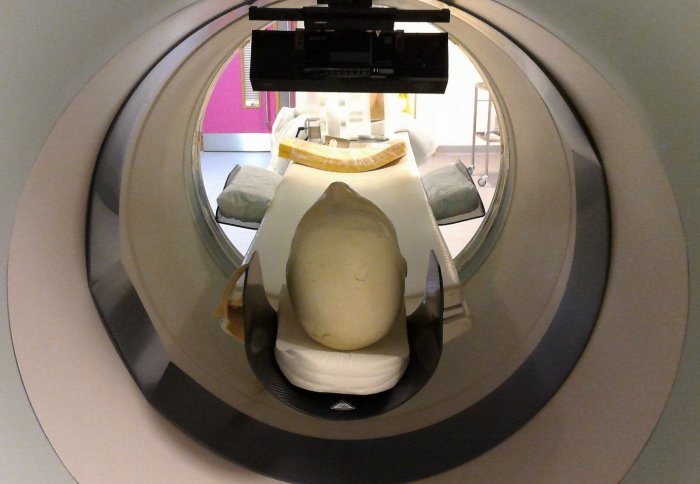
Researchers will integrate the Kinect's 3D camera into a PET scanner.

Researchers are planning to use Microsoft's Kinect video game system to improve the quality of brain imaging pictures in dementia research.
Many patients find it hard or impossible to keep completely still during scans taken for diagnosis or in research studies - particularly patients with dementia or other conditions that can lead to increased head movement. Preventing the blurring effects caused by this movement is an unsolved problem in medical imaging that leads to wasted or inaccurate data, making diagnosis and treatment less effective and more costly.
Kinect, which uses a 3D camera to detect gamers’ movements without the need for a controller, could provide an ideal solution.
Imperial College London and Imanova have been awarded a grant from the Medical Research Council (MRC) to integrate Kinect camera technology into positron emission tomography (PET) imaging, so that motion can be monitored in real time and accounted for in the image reconstruction process.
Professor Roger Gunn of Imanova and the Department of Medicine at Imperial, who will lead the project, said: “This is an innovative way of capitalising on multi-billion dollar investments in the home entertainment industry and applying it to develop an accurate and low-cost solution in the medical sector.”

PET brain scans reveal beta amyloid and tau protein structures characteristic of Alzheimer's disease, but head movements can render the scans unusable.
The team is working with Microsoft and Siemens to develop a reliable and easy-to-use system that can be integrated seamlessly into the scanning environment, allowing widespread adoption in diagnosis and research. They hope to achieve this by employing the Kinect 2 camera in combination with the latest advances in computer vision algorithms.
Coupled with the latest high resolution medical scanners, the resulting images should be free of the effects of any movement during the scan. The camera does not require special lighting, direct contact with, or attachment of anything to the patient.
In the new project, the researchers aim to acquire clinical data to demonstrate the accuracy and usability of the technology in a clinical imaging environment.
Imperial and Imanova are partners in the Dementias Platform UK (DPUK), a multi-million pound public-private partnership developed by the MRC to accelerate progress in dementias research.
“Repurposing low-cost but sophisticated technologies such as the Microsoft Kinect for medical use will not only deliver significant patient benefit within dementia, but has the potential to improve the understanding of a range of conditions to transform the lives of patients,” said Professor Gunn.
Supporters

Article text (excluding photos or graphics) available under an Attribution-NonCommercial-ShareAlike Creative Commons license.
Photos and graphics subject to third party copyright used with permission or © Imperial College London.
Reporter
Sam Wong
School of Professional Development

Contact details
Email: press.office@imperial.ac.uk
Show all stories by this author




Leave a comment
Your comment may be published, displaying your name as you provide it, unless you request otherwise. Your contact details will never be published.